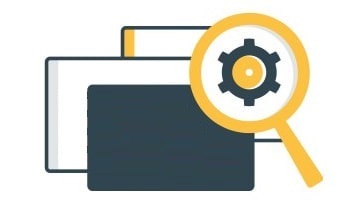Financial Advisers - The Definitive New Zealand Guide
Picking the right Financial Adviser is very important. Our guide explains how to find one, why you might get one, what you will pay and the questions to ask.
Updated 23 December 2022
Summary
More information: We now publish and update Mary Holm's original Financial Adviser list (exclusive to MoneyHub)
Summary
- If you take financial advice from a Financial Adviser, it is going to cost money even if you don't see the bill. The Financial Adviser environment in New Zealand is somewhat misunderstood.
- In most cases, meeting a Financial Adviser won't cost anything - they work on commission. What you pay usually depends on what you invest - very few Financial Advisers charge an upfront fee (there is a list of fee-charging advisers here). If you invest $100,000, it is possible your adviser will be paid around $250-$1,000 per year by the investment platform you select (representing a 0.25% to 1% commission, which isn't uncommon).
- Are you meeting with a financial advisor? The New Zealand Financial Markets Authority (FMA) has a must-read list. We suggest printing it off and going through it, line by line, and ask for an explanation if you don't understand something - it's your money and you're responsible for it.
- This guide walks you through what a Financial Adviser is and everything you need to know to make an informed decision. We explain:
- What is a Financial Adviser?
- Who uses a Financial Adviser?
- When do I need to use a Financial Adviser?
- How much does a Financial Adviser cost?
- How are Financial Advisers paid?
- How do I find a Financial Adviser?
- What questions should I ask a Financial Adviser?
- What can I do if I got the wrong advice?
- Financial Advisers - our view
- 10 Financial Adviser must-knows
More information: We now publish and update Mary Holm's original Financial Adviser list (exclusive to MoneyHub)
Christopher Walsh, MoneyHub's Founder and Head of Research, shares his views on financial advisers:"I'm often asked about my view on financial advisers. Of course, I can't and won't comment on anyone individually. However, I respond by proposing one question:
Important: Please ask how the financial adviser is being paid. You'll need to read what they send you and ensure you understand it. For example, are you paying them a percentage of your investment yearly? Or are the people they invest your money with paying them? The distinction is important. Investment needs to be free of emotion - even if you have a great relationship with a financial advisor, your money is the number one priority, and you must be careful with who gets to invest it. I wish you the best of luck and ask you to remember that no one cares about your money more than you. If something doesn't feel right or you're uncomfortable, you're under no obligation to proceed". |
Christopher Walsh
MoneyHub Founder |
What is a Financial Adviser?
Financial Advisers are professionals who advise on financial planning, insurance, investing and other financial services. They are qualified and usually (but not always) members of Financial Advice New Zealand or similar professional organisations.
Know this first:
Know this first:
- There are a range of financial advisers available, but some are aligned with a limited number of products from product providers, while others have a wide range of products which they consider when recommending financial advice.
- It is important you ask the question at the beginning of the process about the depth and variety of the range of products and providers which they consider in the process of giving advice.
- Throughout your life, you're likely to make different investments and buy different financial products at different times. The purpose of a financial adviser is to help you make the right decision about what investments and products are best for you.
Who Uses a Financial Adviser?
While data is difficult to find, it is reasonable to believe that most Financial Adviser clients tend to be 40+ years of age with a healthy amount of money to invest. Younger New Zealanders are unlikely to seek out Financial Advisers, focusing instead on KiwiSaver contributions, buying a house and investing in bank products and/or managed funds as primary investment options.
When do I need to use a Financial Adviser?
If you are considering investing in complicated financial products and need advice, a Financial Adviser may be familiar with what you are looking at. Financial Advisers usually provide guidance for the following:
- Investments and Retirement Planning: Managed funds and investment trusts
- Insurance: Personal and business insurance
- KiwiSaver: Selecting the right provider, switching to a more suitable scheme and contribution consultation
- Financial Planning for all ages and stages of life
How much does a Financial Adviser cost?
In most cases, meeting a Financial Adviser won't cost anything - they work on commission. What you pay usually depends on what you invest - very few Financial Advisers charge an upfront fee (there is a list of fee-charging advisers here). If you invest $100,000, it is possible your adviser will be paid around $250-$1,000 per year by the investment platform you select (representing a 0.25% to 1% commission, which isn't uncommon).
Warning - You may not be advised on the most cost-effective investment available in the market. However, you can expect them to select the right product for your circumstances.
Warning - You may not be advised on the most cost-effective investment available in the market. However, you can expect them to select the right product for your circumstances.
How are Financial Advisers paid?
We spoke to Financial Advice NZ who advised us that Financial Advisers follow a 'Six Step' Financial Advice Process, which they explain in detail below. In summary, an 'adviser fee' is charged on a monthly basis and is around 1% of the total portfolio value. For example, if you invest $100,000, your Financial Adviser will be paid $1,000 each year.
The process is as follows:
1. The first consultation with the potential client is at no charge.
2. From there the Financial Plan Fee can range from $750.00 to $4,000.00 plus GST. The majority of advisers investment clients will use a personal wealth management system designed to make investment easy and flexible.
What do clients get for the portfolio service fee?
Key Benefits and Advantages
Reporting to You
Investment Portfolio Management
Quality Investments
Disclaimer:
The process is as follows:
1. The first consultation with the potential client is at no charge.
2. From there the Financial Plan Fee can range from $750.00 to $4,000.00 plus GST. The majority of advisers investment clients will use a personal wealth management system designed to make investment easy and flexible.
- The system can only be operated by a qualified financial adviser, that is they must be an Authorised Financial Adviser registered on the Financial Services Providers register.
- These systems provide access to over 2,000 investment options within New Zealand and offshore from Managed Funds, ETFs, direct investments including term deposits.
- The investments are held separately on the client's behalf by an independent custodian. Advisers will generally charge a 1% Portfolio Service/Annual Adviser Fee with the percentage fee reducing depended on the size of the portfolio.
- If there is any commission, rebates or reduced management fees, these are all credited to the client and shown in their cash account.
- The adviser fee is charged on a monthly basis and paid for separately from the clients cash account.
What do clients get for the portfolio service fee?
Key Benefits and Advantages
- Monitoring Your Investments
- Ongoing recommendations and monitoring of your investments to ensure that it continues to meet agreed investment goals and objectives
- Meeting regularly with you on an agreed basis to review investments
- Making and implementing agreed changes to your investment portfolio.
Reporting to You
- Consolidated reports on investments
- Current valuations
- Performance reporting for both individual investments held and overall portfolio performance
- A list of cash transaction history
- A comprehensive tax report annually which also details the tax-deductible fees that may be available after consulting your professional taxation adviser.
Investment Portfolio Management
- Independent investment custodian and professional administration
- Choice of investments and investment portfolios
- Regular withdrawals for income purposes
- Portfolios can be rebalanced
- Portfolios can be changed to match changes in personal situation
- Tax paid on your investments in 'multi-rate PIE’s (PIE’s are Portfolio Investment Entities) at your notified Prescribed Investor Rate (PIR)
- Online access to information about your account.
Quality Investments
- Access to reduced management fees on some funds
- Access to tax effective investments.
Disclaimer:
- MoneyHub has no oversight or ability to gauge the accuracy of the above statements provided by Financial Advice NZ.
- A suggested method of insuring you receive the above benefits is print a copy of the section above and ensure that the financial adviser you are meeting with agrees that they will be provided as part of their service.
How do I find a Financial Adviser?
- First of all, talk to your family and friends and ask them if they have used a Financial Adviser in your area. This is a good starting point and make sure to ask about their experience (good or bad).
- It is likely you will want to see more options, and Financial Advice New Zealand (previously the Institute of Financial Advisers) lets you search by region for a local Financial Adviser.
- Following that, Googling "Financial Adviser (and the name of your location)" is a great place to start - be sure to look for Google Reviews of any adviser you shortlist.
More information: We now publish and update Mary Holm's original Financial Adviser list (exclusive to MoneyHub)
What questions should I ask a Financial Adviser?
The New Zealand Financial Markets Authority (FMA) has a must-read list. We suggest printing it off and going through it, line by line. While this is a complete list of questions to ask and consider, we recommend always asking for an explanation if you don't understand something when meeting with a Financial Adviser. Generally, the FMA's list covers:
- How do I know what you’re recommending is the best option for me?
- What are the risks of this investment?
- What will I pay?
- What information will I receive about my investments?
- How can I get my money back?
What can I do if I got the wrong advice?
If you feel you've been incorrectly advised, you have a right to complain. You cannot complain about the performance of an investment, only the way you were advised. Traditionally few people have done so, unsure and embarrassed by how the investment has turned out and then putting it down to experience. However, if your issue is the advisory:
Remember, when it comes to investing, 'low risk' isn't the same as 'no risk'. 'Low risk' can still see you lose your money, and provided the Financial Adviser has explained this fact, there are no grounds for complaint. But if you were advised that a product you invested in could not lose money, and then you did, you have been incorrectly advised.
- The best approach is to complain to the Financial Adviser first - explain why you think the advice you received was wrong and collect as much paperwork and emails as you can find to support your argument.
- If you don't get a favourable response, you can complain to the Ombudsman service. The Financial Markets Authority and the NZ Government both set out excellent guides on who to complain to.
Remember, when it comes to investing, 'low risk' isn't the same as 'no risk'. 'Low risk' can still see you lose your money, and provided the Financial Adviser has explained this fact, there are no grounds for complaint. But if you were advised that a product you invested in could not lose money, and then you did, you have been incorrectly advised.
Financial Advisers - Our View
- If you do use a Financial Adviser, be sure that your investments are diversified - anyone who suggests putting all of your money in a single investment is incompetent. Also, ensure that all your investments are being invested directly in your name with the investment entity and NOT in the name of the Financial Adviser or their company.
- NEVER invest in an organisation you have never heard of or can't verify its existence, no matter how much the Financial Adviser may reassure you.
- Transparency and financial advisory have often been distant when it comes to financial advisory - in the age of the internet, we believe even the most inexperienced investor can learn with tools and resources from Sorted and MoneyHub.
- Most investments offered by managed funds are made up of shares and bonds - you are likely to find platforms like Kernel, Flint Wealth, InvestNow cheaper compared to what a Financial Adviser offers.
Peter, a MoneyHub user writes: "I was badly burned by a Financial Adviser a few years ago. I was told I was investing in a safe and conservative fund, but I lost 90% of my money as it turned out to be very dodgy. I later found out that the guy was employed by the fund manager, and that the Financial Adviser company was owned by the scheme! My money was blown and I got useless excuses after it all fell over. I'm still very angry."
Suggested Resources for when Meeting a Financial Adviser
- Young and looking to meet with a Financial Adviser? A reader of the New Zealand Herald describes her experience in doing just that.
- A Stuff.co.nz article claimed that while there are "some excellent Financial Advisers out there, but most advisers do not have your best interests at heart - something like 80 per cent of advisers work on a commission model". Furthermore, the article claimed "commissions create a fundamental conflict of interest, and they'd have to be superhuman not to let it affect their judgment."
- More information: We now publish and update Mary Holm's original Financial Adviser list (exclusive to MoneyHub) which has helpful tips and questions to ask.
10 Financial Adviser Must-Know Facts
You need to understand exactly what you are investing inThe Financial Adviser MUST make you understand what you are investing in - if you cannot understand how the investment works, you need to find another solution. Investing success requires you being comfortable with where your money goes - not understanding it means you'll have no peace of mind.
|
You have the right to ask the Financial Adviser whatever you wantKnowing your Financial Adviser as a person is essential, and make sure you like them. If you feel as if they talk down to you or don't listen to your needs, look elsewhere - there are so many to choose from.
Ask them how long they’ve been in the business and how many clients they work with. It's also a good idea to ask how they communicate going forward - is it only via email, or do they take phone calls? If you want to understand their own investing strategy, ask what they invest in personally. A Financial Adviser who doesn't have any investments (not uncommon) is probably not someone you want to work with. |
Understand that you may not have instant access to your investmentMake sure you understand that if you need to withdraw money from your investment you may not be able to get it right away. Some investments have a "lock-up" period, and there may also be fees. Understanding all of this BEFORE investing is essential.
|
Financial Advisers are (usually) not wealthy, nor do they have millions of dollars in investmentsFinancial advising is not an overly lucrative career - it is a sales-based role that involves a lot of upfront time which can go unpaid if clients don't invest. If the average Financial Adviser earns 1% on the investments they manage, that's only $1,000 for every $100,000 invested. To make a decent income, they need to find either a lot of clients or a lot of clients with a lot of money, or a mixture of both. While some Financial Advisers charge upfront fees, most don't, so the advice you receive will be 'free' up to the point that you invest.
|
The most suitable investment may not be put on the tableFinancial Advisers only work with a limited range of investment options - like an insurance broker to mortgage broker, they have their favourites and established relationships. This means if you're looking to invest in managed fund platforms like InvestNow, Flint Wealth and Kernel Wealth chances are the Financial Adviser won't offer such an option.
|
Financial Advisers were widely criticised in the 2008 global financial crisisMany Financial Advisers were widely blamed for investing money in finance companies that failed in the last financial crisis. It's important to know that the Financial Advisers were not responsible for the investment and management decisions of failed companies. While many finance companies offered Financial Advisers hefty commissions in exchange for investments, banks and lending companies worldwide collapsed or were deeply affected by the financial crisis. Despite media reports, Financial Advisers played no direct part in the crisis.
|
You can have more than one Financial AdviserWhile you may have one lawyer, one accountant and one mortgage broker, you are welcome to seek financial advice from as many people as you want. As the fee you pay will usually be a percentage of what you invest, you have the power to invest your money where you want. If this means splitting it between two or more Financial Advisers, you are free to make that decision.
|
Financial Advisers are best for the long-termFor most people, investing is not a short-term activity. A Financial Adviser is (in most cases) focused on wealth creation, and this is a long-term activity. Your relationship needs to stand an extended period, so having someone you trust and like as a person is vital.
If later down the line your Financial Adviser decides to change firms, your investments usually (but not always) stay with the existing firm and won't travel over with the adviser. If you follow the adviser to the new firm you'll also have to deal with someone from the existing firm with regards to your current investments. |
Your Financial Adviser may be getting 'soft commission' for recommending a particular investmentMany financial institutions in New Zealand offer Financial Advisers incentives such as all-expenses-paid trips to Fiji, Las Vegas and other exotic destinations. You won't see this in your fees schedule, so it may be hard to know what the 'real' reason an adviser pushes one investment over another. This Stuff.co.nz article explains this industry-wide issue in detail.
|
Financial Advisers must explain the tax obligations of your investmentsYour investments will have tax obligations - while it's your responsibility to pay your own tax, every Financial Adviser must fully explain the tax consequences. If you don't understand how the investment's tax works, ask until you do.
|


















